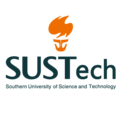Opto-electronic Information Science and Engineering

Optoelectronic Information Science and Engineering is a comprehensive technology, which is composed of optics, optoelectronics, microelectronics and other technologies. It is a new cross-subject with strong practical application, and is widely used in the national economy and defense. The professional training includes the theoretical knowledge of optoelectronics, flat panel display, lighting, solar energy, optical design and optical communication technology. At the same time, English and computer application training are important. Graduated students will be engaged in the field of optoelectronic information, optical communication, photoelectric detection, optoelectronic devices, new display and lighting technology, new energy, and new technology research and development. They are also suitable for the research and development of optoelectronic devices and related high-tech disciplines, scientific research institutions, universities and institutions engaged in scientific research, development, teaching and management.
More information about the program
- Brandos atestatas – pažymių vidurkis brandos atestate turi būti ne mažesnis nei 8, o brandos egzaminų vidurkis ne mažesnis nei 85%.
Brandos atestato originalą gali pateikti iki stojimo pabaigos. Oficialus dokumentas turi būti išverstas į anglų kalbą, patvirtintas notaro.
Anglų kalbos žinias gali patvirtinti vienu iš šių būdų:
- IELTS - 6.0
- TOEFL - 80
Išimtys taikomos asmenims, kurių gimtoji kalba yra anglų, ir tiems, kurie baigė mokyklą ar bakalaurą anglų kalba.
Papildomai:
- Du rekomendaciniai laiškai – privalai pateikti du mokyklos mokytojų parašytus rekomendacinius laiškus. Laiškai turi būti anglų kalba, patvirtinti dėstytojų parašais ir jų kontaktine informacija
- Išskirtinių talentų ar gabumų kokiose nors srityse įrodymai (pasirinktinai).
- Motyvacinis laiškas – jame turi papasakoti, kuo gali būti naudingas universitetui ir studentų bendruomenei, kaip universiteto programa tau padės pasiekti tavo ateities karjeros viziją. Laiškas turi atsakyti į šiuos klausimus ir atitikti šiuos reikalavimus:
- Kokie tavo turimi įgūdžiai, savybės, patirtys padės tau studijuojant šią programą? Kaip jie padės tau sėkmingai mokytis bei pasiekti gerų rezultatų?
- Kaip galimybė studijuoti SUSTech univesitete padės tau tobulėti asmeniškai, akademiškai ir kaip profesionalui?
- Kokie yra tavo karjeros tikslai? Kaip sėkmingas šios programos baigimas padės tau juos pasiekti?
- Motyvacinio laiško apimtis – ne daugiau nei 500 žodžių. Kalba – anglų. Motyvacinio laiško autorius turi būti pats stojantysis.
SVARBU!
Stojimo mokestis - Kinijos universitetai taiko stojimo į universitetą mokestį, kurį privalai susimokėti aplikuodamas į universitetą. Stojimas į tris šio universiteto studijų programas kainuoja 90 €.
Turi išlaikyti universiteto matematikos ir fizikos egzaminus (kai kuriose programose – ir anglų kalbos egzaminą) – universitetas rengia stojimo egzaminus, kuriuos privalu išlaikyti norint įstoti. Juos gali laikyti po interviu atrinkti kandidatai.
Student Outcomes (SOs) that prepare graduates to enter the professional practice of engineering:
SO 1: an ability to identify, formulate, and solve complex engineering problems1 by applying principles of engineering, science, and mathematics.
SO 2: an ability to apply engineering design to produce solutions that meet specified needs
with consideration of public health, safety, and welfare, as well as global, cultural, social, environmental, and economic factors.
SO 3: an ability to communicate effectively with a range of audiences.
SO 4: an ability to recognize ethical and professional responsibilities in engineering situations and make informed judgments, which must consider the impact of engineering solutions in global, economic, environmental, and societal contexts.
SO 5: an ability to function effectively on a team whose members together provide leadership, create a collaborative and inclusive environment, establish goals, plan tasks, and meet objectives.
SO 6: an ability to develop and conduct appropriate experimentation, analyze and interpret data, and use engineering judgment to draw conclusions.
SO 7: an ability to acquire and apply new knowledge as needed, using appropriate learning strategies.
SO 8: knowledge of probability and statistics including applications, differential and integral calculus, sciences, engineering sciences, and computing science and application to analyze and design complex electrical and electronic devices, software, and systems containing hardware and software components.
SO 9: knowledge and application of advanced mathematics, such as differential equations, linear algebra, and complex variables.
SO 10: knowledge and application of and appropriate laboratory experience in: geometrical optics, physical optics, optical materials, and optical and/or photonic devices and systems.

